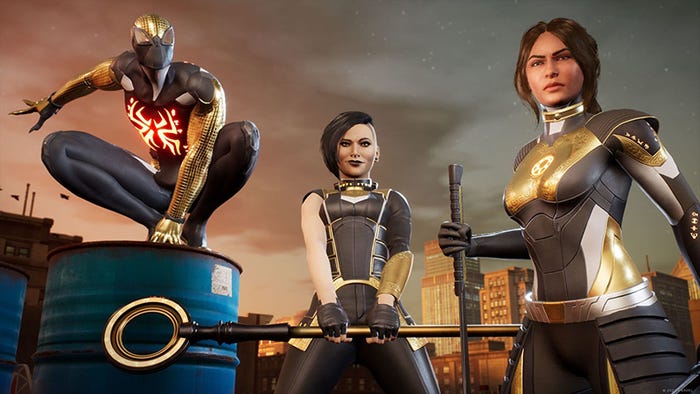Why Warren Spector was excited to do Disney games after immersive sims
Though his time making Mickey Mouse games was short, Spector still thinks of the Epic Mickey series as a high point over his 40-year career as a game developer.

Game designer Warren Spector has several games under his belt, but one game that doesn't get talked about as much is Epic Mickey. Made by his company company Junction Point Studios, the Nintendo Wii title and its sequel have largely faded from memory, but in a recent retrospective on his career, Spector looked back on the short-lived platformer and the love for Disney that inspired it.
Epic Mickey first came about as Junction Point was looking for work after various pitches (including a Half-Life 2 episode) were either shot down or canceled by their publishers. Seamus Blackley, a game designer and agent whom Spector worked with at Looking Glass Studios, urged him to pitch Disney.
Then-Disney Games head Graham Hopper asked Spector if he'd be willing to do a Mickey Mouse game, to which he readily agreed. By his own admission, having Mickey as the star of his project "could reach a mainstream audience with the [immersive sim] game approach, but I probably would have done anything to work with Mickey."
Spector confessed to being a lifelong Disney fan, which was an additional incentive to work with the corporation. Even so, Junction Point faced hurdles while making the series, much of which stemmed from how Disney handled video games at the time.
For example, Disney would only approve Junction Point's pitch if it could own the developer, which he refused the first time they made the offer. (In his words, "The deal just wasn't that good.") When it became clear the game could only be made by being acquired, he relented.
When the deal finally did get signed, a level builder and narrative lead both quit Junction Point upon hearing it was making a Mickey Mouse game. He understood their leaving, much like he was grateful for those who stayed: if they weren't already Disney fans like he was, "they felt like they could become fans by the end of the project."
The first Epic Mickey was released in 2010, and Spector loved that it was an "immersive sim lite" with elements of platformer, shooter, and adventure games. He's especially proud that the game was able to reintroduce Oswald the Lucky Rabbit back into popular culture after Disney lost the character's rights in 1928.
The Epic Mickey franchise ended with the 2012 sequel, Epic Mickey: The Power of Two, after which plans for a Donald Duck-focused spinoff (called Epic Donald) were canceled. When Disney turned down the Donald pitch, Spector had his first inkling that things were "going south," amplified by the company's rejection of his updated pitches.
Junction Point closed down in 2013, and the dissolution of that relationship with Disney was vaguely described as "all business nonsense." Despite how things went down, he looked back on both games fondly, and later met a developer who told him she started her own company because of them.
"I ran into her at Disneyland," he remembered. "[She] told me that she 'changed the way I thought about design because of a game you worked on. Now those are success criteria that have kept me going, even when things got tough."
"I've had the opportunity to help, in a small way, create and define a new art form, an opportunity that comes along only two or three times a century. [...] I’ve loved my work, even when I've hated it. (You developers know what I mean!). I hope every one of you reading this feels that love every day when you go to the office."
Spector's full look back on his career in game development, which also includes his time at Origin and his overall impact on the game industry, can be read here.
About the Author(s)
You May Also Like













